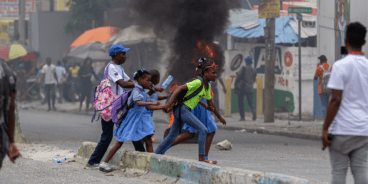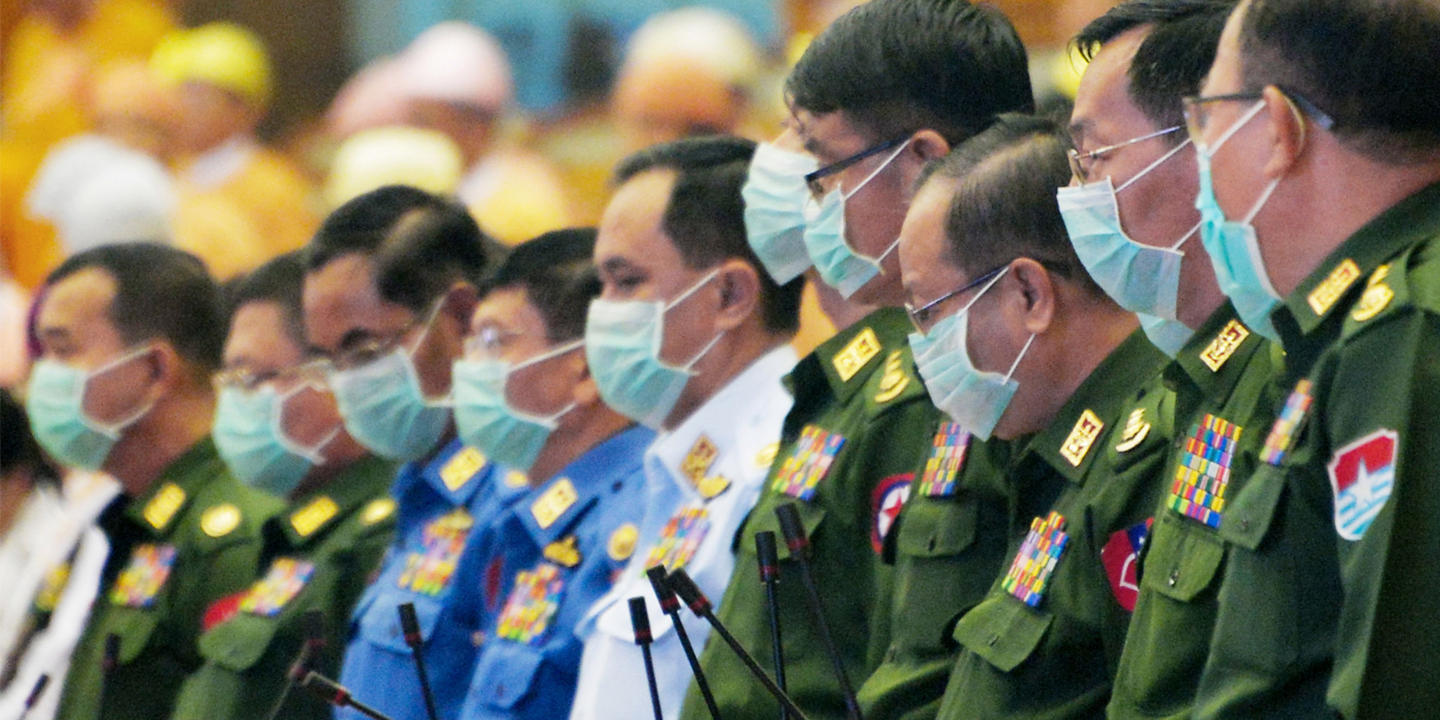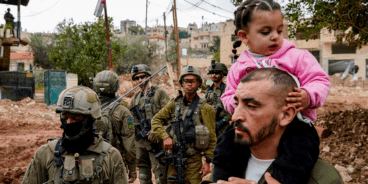

Joint letter calling on the United States State Department to Protect Human Rights in Myanmar (Burma) in the face of COVID-19
To the Honorable Michael R. Pompeo
Dear Mr. Secretary:
We write to you as a group of 64 non-governmental organizations in the United States concerned about the dire human rights and humanitarian situation on the ground in Myanmar, particularly in light of COVID-19.
We appreciate the United States’ long-standing commitment to the people of Myanmar. We strongly agree with the concerns raised in last month’s joint diplomatic statement from the U.S. Ambassador Scot Marciel and his distinguished colleagues regarding the dangers of COVID-19 and the devastating impacts posed by the lack of action from the leadership of Myanmar. We recognize the ongoing diplomatic engagement by the Ambassador and the Department. Unfortunately, despite these efforts, Myanmar’s civilian government and military (Tatmadaw) continue to engage in actions that exacerbate the challenges presented by the COVID-19 pandemic.
Given the context and the urgency of the situation, we call on you, Mr. Secretary, to utilize all diplomatic channels and high-level pressure on the government of Myanmar to strongly urge them take the following actions:
I. The government of Myanmar should call for—and the Tatmadaw should agree to—a nationwide ceasefire in accordance with the UN Secretary General’s call for a global ceasefire in the face of COVID-19 pandemic.
In Chin and Rakhine States, the conflict between the Tatmadaw and Arakan Army has escalated, and many civilians are caught in the middle despite the rising threat posed by COVID-19. Conflict monitoring data in Myanmar suggests that more civilians have died from this conflict during the first three and a half months of 2020 than in the whole of 2019. As the State Department noted in its April 22, 2020 press statement, the killing of a WHO driver on April 20 further highlights the immense toll the fighting has on attempts to prevent the pandemic’s spread in already vulnerable states.
As recently as April 29, Yanghee Lee, the UN Special Rapporteur on the situation of human rights in Myanmar said the pandemic has “emboldened” the Tatmadaw, and that the military’s “conduct against the civilian population of Rakhine and Chin States may amount to war crimes and crimes against humanity.” The Myanmar Government also branded the Arakan Army a terrorist group, instigating further conflict. On May 9, the Myanmar military issued a ceasefire that would last until August 31. While this should be a welcome announcement, it excludes the conflict in Rakhine and Chin States – undermining its credibility and utility. The U.S. Government should continue to pressure the government of Myanmar—including the Tatmadaw—to agree to and implement a nationwide ceasefire, which the Arakan Army has signaled it would accept.
The Tatmadaw should be discouraged from increasing militarization in sensitive areas, and from allowing military-owned and affiliated companies from exploiting the crisis under the guise of development. This month, the Karen Peace Support Network reported on increased military presence and use of mortars as part of a road construction effort. This escalation—in the face of the military’s ongoing ceasefire with the Karen National Union—is causing volatility and increased risk of violence and displacement that would worsen the situation in areas that already lack resources to adequately respond to COVID-19. There are ongoing concerns and similar challenges in responding to COVID-19 in other ethnic minority areas throughout the country, such as Northern Shan State and Kachin State.
II. The Myanmar Government must immediately end its internet blackout and allow access to lifesaving information.
Exacerbating the conflict in Chin and Rakhine States, the Myanmar Government has instituted an internet blackout in as many as nine townships at various times since June 2019, impacting approximately 1 million civilians. As of May 3, the blackout had lifted in only one of the nine townships, Maungdaw. The internet blackout carries a deadly weight during the pandemic. Particularly in light of the restrictions on access to health care, education and freedom of movement, the internet blackout leaves communities with limited access to lifesaving information about the virus. It also hinders the ability of health workers to effectively respond to cases and ensure individuals with COVID-19 can access health services. The U.S. Government should urge an unqualified and permanent lifting of internet restrictions in all townships.
III. The Myanmar Government must stop targeting journalists and reverse directives to block websites.
The Myanmar Government has continued to crush freedom of the press at a time when journalism serves as a key source of information on the virus and how to prevent its spread. In March, the Ministry of Communication and Transport ordered telecommunications operators to block over 200 websites, including many media groups. Further, the use of the Counter-Terrorism Law to target journalists represents a concerning development. The editors-in-chief of three media organizations have been charged under this law for their reporting on the conflict in Western Myanmar. After being arrested and detained in prison for ten days, charges against the editor-in-chief of Voice of Myanmar have been dropped, but charges against the other two journalists remain. The continued attacks on the independent press has a stifling effect and serves to create greater opacity at a time when information is necessary for public health and safety.
IV. Freedom of movement and equitable access to testing, health care, and humanitarian aid must be ensured, including for Myanmar’s most marginalized.
For years, restrictions on access to humanitarian aid in Rakhine, Kachin and northern Shan States have left hundreds of thousands of IDPs living in cramped, squalid conditions in camps without adequate health care and humanitarian support. The COVID-19 response is hindered by limits on freedom of movement and poor conditions in the camps. Myanmar authorities must abandon restrictions on movement—which limit communities’ access to adequate health care and livelihoods—as well as other forms of systemic exclusions targeting ethnic minorities, including the Rohingya of Rakhine State. The COVID-19 response must not be used as an excuse to further undermine basic rights and access to humanitarian assistance, especially when cases of COVID-19 are detected in IDP camps. Any measures to quarantine or isolate in the interest of preventing the spread of COVID-19 must be lawful, necessary, and proportionate.
To that end, the U.S. has a distinct opportunity, as the largest shareholder of the World Bank, to hold Myanmar accountable for using its recent $50 million credit from the World Bank for COVID-19 emergency response project to deliver equitable healthcare for all ethnic minority populations. Diagnostic testing and the majority of Myanmar’s health care resources are localized to Yangon. The Myanmar Government has not taken adequate steps to promote inclusivity in its response. Without assurance of equitable distribution, testing, and information, the COVID-19 crisis is likely to exacerbate existing divisions, fomenting violence, and discrimination against ethnic minority communities.
We recognize that the U.S. Government has made significant humanitarian aid contributions to Myanmar. We welcome efforts to continue this lifesaving support specific to the COVID-19 response in Myanmar and around the globe. It is essential for U.S. diplomatic engagement to ensure that these investments are used as effectively and equitably as possible.
We thank you for your time and attention to this dire issue. If any of our organizations can be helpful, please feel free to contact us via Rori Kramer, Director of U.S. Advocacy at American Jewish World Service at rkramer@ajws.org.
Sincerely,
- America for Rohingya
- American Jewish Committee
- American Jewish World Service
- Anti-Defamation League
- Association of Rabbis and Cantors
- Cantors Assembly
- Coalition Against Global Genocide
- Colorado Jewish Community Relations Council
- Congregation B’nai Yisrael
- Congregation of Our Lady of Charity of the Good Shepherd, U.S. Provinces
- Emgage Action
- Foundation for Ethnic Understanding
- Freedom House
- Global Centre for the Responsibility to Protect
- Global Witness
- Hebrew College
- Indianapolis Jewish Community Relations Council
- Institute for Asian Democracy
- International Campaign for the Rohingya
- International Interfaith Peace Corps
- Investors Against Genocide
- Islamic Society of North America
- Jewish Alliance of Concern Over Burma (JACOB)
- Jewish Community Relations Council of Atlanta
- Jewish Community Relations Council of Louisville
- Jewish Community Relations Council of New York
- Jewish Community Relations Council of St. Louis
- Jewish Community Relations Council of the United Jewish Federation of Tidewater
- Jewish Community Relations Council, Milwaukee
- Jewish Community Relations Council/AJC – Detroit
- Jewish Council for Public Affairs
- Jewish Federation of Fort Wayne
- Jewish Federation of Greater Ann Arbor
- Jewish Labor Committee
- Jewish World Watch
- Kachin Alliance
- Karen Organization of America
- Massachusetts Coalition to Save Darfur
- Mid-Kansas Jewish Federation
- Minnesota Peace Project
- National Council of Churches
- Nationalities Alliance of Burma (USA)
- Never Again Coalition
- Pax Christi USA
- PEN America
- Rabbinical Assembly
- Rabbinical Council of America
- Reconstructing Judaism
- Reconstructionist Rabbinical Association
- Refugees International
- Religious Action Center of Reform Judaism
- Robert F. Kennedy Human Rights
- Stop Genocide Now
- T’ruah
- Temple Kol Tikvah of Lake Norman
- The Episcopal Church
- The Muslim-Jewish Solidarity Committee
- The New York Board of Rabbis
- The Orthodox Union
- The Shalom Center
- The Union for Reform Judaism
- U.S. Campaign for Burma
- Unitarian Universalist ServiceCommittee
- Uri L’Tzedek
Related Publications


Populations at Risk, March 2025
